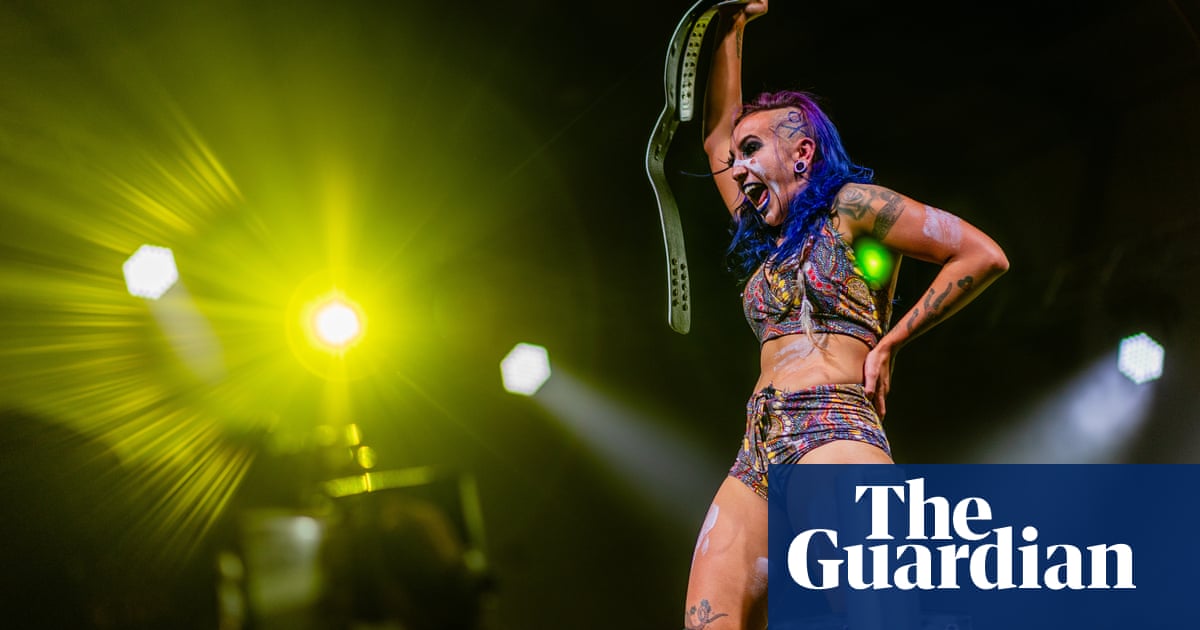
It took until the final match of the evening for the 600-strong crowd at Ballarat’s Selkirk Stadium to erupt in a “this is awesome” chant. The refrain rang out at last weekend’s all-women professional wrestling show, HER, as “Adelaide Powerhouse” Delta fought international superstar “The Juggernaut” Jordynne Grace in a battle that spilled out of the ring and on to the entrance ramp.
HER, a weekend-long pro wrestling convention , was held for the first time outside America last weekend. This kind of wrestling, known for its over-the-top theatrics and portrayal of heroes and villains, is popular in the US but has an Australian fanbase, too.
Local fans descended on Ballarat despite the unseasonably chilly temperatures, getting autographs from and taking photos with the likes of American stars Mickie James, who produced HER, and Bret Hart, who hosted the men’s event the following night. The convention took over the historic red brick Mining Exchange and the Civic Centre, while the 3,000-seat Selkirk basketball stadium hosted the events.
HER kicked things off on Friday night, with the crowd respectful yet eager. “Thank you, Mickie” chants bid farewell to James after she lost to Vix Crow. Up and coming Australian wrestlers, including Aysha and Tarlee, competed in a six-pack match – an all in brawl, which gives each character a moment in the spotlight. The lineup was diverse; alongside the American talent was Japanese icon Bull Nakano, trans woman wrestler Nikki Van Blair, part of tag team PPK, and the enigmatic Erika Reid, a Wiradjuri wrestler whose Indigenous heritage is expressed in the form of an Indigenous artwork on her ring outfit and white ochre on her face and body.
For these Australia-based athletes, the event offered a platform that is very rarely available outside the US and a sign of what they say is the strength of local female wrestling.
“Some of the best wrestlers in Australia are women,” says Aysha, a Melbourne-based pro wrestler. “This is such a big platform for us. Hopefully it gets more eyes on us and leads to more opportunities similar to this.”
Tarlee, another performer on the night, says: “We are one of the best things about Australian wrestling and I feel like I can say that confidently. We’re the main attraction.”
HER was also a homecoming for other Australians made good in WWE, the famous US professional wrestling league. The first Australian woman signed to WWE, Melbourne’s Tenille Dashwood, played the heel (baddie) before bringing the crowd onside in a match against Jessica Troy, from Sydney, in a bout consisting of plenty of ringside larks as well as the technical prowess that Troy is known for.
after newsletter promotion
“There’s such an awesome fanbase in Australia and they always make me feel welcome. I love that Aussie pride,” says Dashwood.
James and Crow’s match at HER was only the second time they’d wrestled each other, despite working together in WWE for the better part of two decades. Their previous match was in 2009 for a sparkly pink butterfly Divas championship title belt that symbolised the limited and homogenised depictions of female wrestlers, or “Divas”, at that time. Women’s wrestling has since matured to involve bigger events such as HER and a more diverse range of characters and performers.
“I can now identify as a female wrestler, and that’s empowering,” Crow says.
James acknowledges that the “Diva” moniker was “hella marketable”. “Without that marketing … we wouldn’t have this whole new generation of women who wanted to be wrestlers, who wanted to be divas,” she says.
“We have more women wrestlers now than ever before. When I started there were literally a handful of women that I could wrestle, who actually knew how to wrestle. Now there’s hundreds and thousands.”
In between autograph signing the morning after, James was tired and sore but jubilant about HER. So would she do another event in Australia? “Heck yeah! Again and again and again. What I would hope is that after HER, the love transcends across the entire industry there and everyone starts to level up their game for the ladies.”